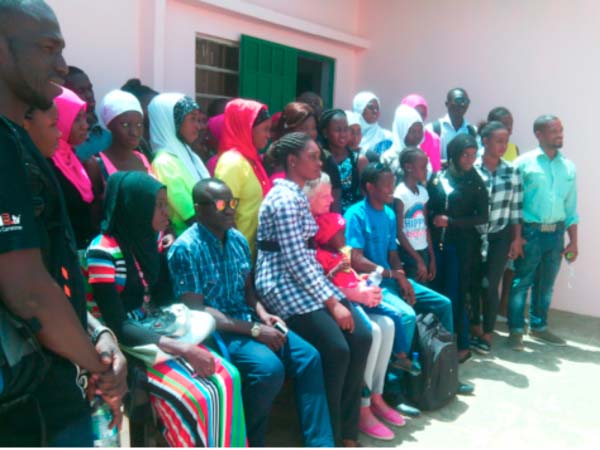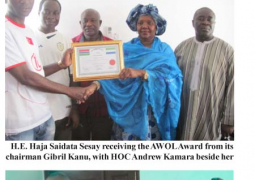
Lamin
Institute of Professional Studies (LIPS) on Saturday organised a daylong
workshop to sensitise students on illegal migration.
Speaking
in an interview with The Point after the workshop, Princess Osagie, director of
LIPS, said the sensitisation workshop was meant for students to discourage the
youth from going through the ‘back way’ to Europe, to engage themselves in
business activities in the country.
“We
offer courses like business, marketing, travel and tourism, computer and
information technology, and we also train students in English language
proficiency, whereby students get to improve their English, and we also do
entrepreneur courses so that students can be empowered when they graduate.”
Ms
Osagie noted that students need to know that going through the illegal way is
not right, because many people lose their lives.
They
also told them that in The Gambia, there are many opportunities for them to
have a decent living, instead of going to Europe through the back way.
Nico
Hollander, a pastor from Netherlands and a presenter at the training workshop,
said his mission in The Gambia is to do something for youth empowerment.
He
added that the programme is to inform the young people that there are better
ways than the back way, and that there are lots of possibilities for young
people to tap on.
People
have to develop themselves so that they could have a better future, he
continued, adding that his mission is to empower youths.
He
is also working with young Africans, as well as the Association of Dutch NGOS
in the field of youth empowerment.
Lamin.
F. Ceesay, programme coordinator/trainer at Yep Africa, in his presentation,
said they believe in empowering the youths, which means creating an enabling
environment under which young people could act on their own behalf rather than
on the direction of others.
The
Yep Africa director further informed the participants that its need a great
realistic that any young person living his destination to an-none destiny is
due to factors that any problem you see there is a root cause.
“I
always challenge people that before you talk about the problem you first need
to look at the root cause, and what are the root causes; and unless those root
causes are addressed, then the problem will not be addressed.”




